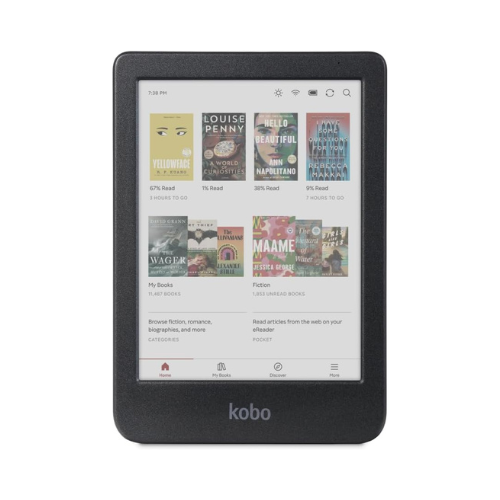Discover how to create a distraction-free phone experience that helps you focus, read more, and reclaim your time.
Heads up, gorgeous. Some links you see here are affiliate links. If you click and buy something, I might get a coffee (or two) out of it. The price stays the same for you, promise.
My phone used to be my master. The tiny thing ruled my mornings and interrupted my conversations. It filled every sluggish moment and made itself indispensable through its mere existence. And when I wasn’t scrolling, I always felt the urge to check. Because what if there was something urgent? What if something occurred in the expansive digital universe, and I was one of the last to know?
It turns out that this constant need to check is linked to more serious psychological tendencies. People with a fear of missing out (FOMO) tend to have more extreme reactions when the Internet or an app they use stops working. Researchers learned that people with high levels of neuroticism and extroversion are more prone to frustration, anxiety, or even panic when they lose access to their devices.
This maladaptive response can negatively impact productivity and mental well-being. The more attached we become to our digital tools, the more distressing it is when they don’t function as expected. And I was no exception.
Eventually, I admitted to myself I was hemorrhaging time and losing focus, and—if I’m being honest—a bit of my sanity. Worse, I was handing over my data, my habits, and my attention to an industry built on keeping me hooked. Something had to change. So, I turned my phone from a dopamine dispenser into a tool that worked for me. Here’s how I did it.
1. I Ruthlessly Curated My Notifications
First, I confronted my notifications. I turned off everything that wasn’t essential—social media, shopping apps, and email. The result was a distraction-free phone that stopped stealing my attention every five minutes. I’d find out important things when I wanted to, not because some algorithm had decided to pull me back into the matrix.
2. I Rearranged My Home Screen
My home screen used to be a minefield of temptation—colorful icons designed to lure me into time sinks. So, I cleared the decks. I moved important apps—messages, maps, my calendar—to the first page. I buried everything else in folders, some got deleted altogether. Now, when I pick up my phone, it doesn’t seduce me into mindless scrolling.
3. I Set Time Limits (And Honored Them)
I used to think I had self-control. Then I realized I was spending about seven hours and 38 minutes on my phone. Those were hours that slipped away like water through my fingers, hours I can’t get back. I knew I couldn’t depend on my willpower. So I decided to set up a barrier. I placed app limits for social media and news apps—15 minutes a day, no extensions.
On my iPhone, I went to Settings > Screen Time > App Limits > Add Limit.
At first, I found myself ignoring the limits like a defiant teenager. But eventually, I became more cognizant of my time, and those “just five more minutes” extensions became far less frequent.
4. I Turned on Focus Mode
Apple and Android both offer Focus Modes. I set mine to block all but urgent notifications during work hours and before bed. When Focus Mode is on, my phone buzzes only when someone in my family is trying to contact me. My distraction-free phone is silent and less demanding. It feels less like an insistent salesperson and more like a supportive friend, always there when I need it, but knows when to keep quiet.
Read: The Quiet Crisis Affecting Your Digital Health and Wellness
5. I Took Security More Seriously
Distraction wasn’t my only concern. Studying cybersecurity made me realize my phone was a treasure trove of personal data open for exploitation.
So, I invested in a password manager. I turned on multi-factor authentication wherever I could. I went through my apps and revoked unnecessary permissions. And for those times when I can’t avoid public Wi-Fi? I use a VPN.
Now my phone is less vulnerable to hacking or social engineering attempts. So far, so good. But cyber threats keep evolving and we can never be too careful.
6. I Got Myself an E-Reader
At some point, I had to ask myself: What was I looking for when I picked up my phone? Entertainment? Connection? A way to escape the crushing existential weight of modern life? More often than not, I just wanted something to read. But reading on my phone in many instances led to doomscrolling. A news article turned into scrolling through Twitter, which turned into Reddit, which turned into an hour lost to a comments section dumpster fire.
So, I bought an e-reader, a device with one job: to let me read without distractions. No notifications, no infinite scroll. If I stumble upon an article I thought was interesting, I send it to Pocket and read it on my Kobo. Now, instead of reaching for my phone when I’m bored, I reach for my e-reader. And in doing so, I’ve rediscovered deep, uninterrupted reading—the kind my phone had slowly eroded.

Kobo Clara Colour eReader
Meet the Kobo Clara Colour—your ticket to distraction-free, full-colour reading bliss. With a 6” E Ink Kaleido 3 display, it brings book covers, comics, and highlights to life—without the doom scroll. Waterproof and eye-friendly, it’s the perfect excuse to ignore notifications and finally tackle your TBR pile.
It’s not just about escaping the noise of the internet, though. There’s research that backs up the benefits of reading for brain health. A study found that engaging in mentally stimulating activities, like reading and writing, throughout life can help preserve memory. The study showed that habitual reading and writing—whether as children, adults, or seniors—experienced slower cognitive decline in old age. The research found that mental activity, including reading, supplied almost 15 percent of the difference in memory decline, beyond just the physical signs of dementia like brain plaques and tangles.
Parting Thoughts
I won’t pretend I’ve achieved digital moksha. But social media doesn’t devour hours of my day anymore. If your phone feels like it owns you more than you own it, maybe it’s time for a digital detox. And a distraction-free phone is the key. You might be surprised by how much space—and sanity—you get in return.
